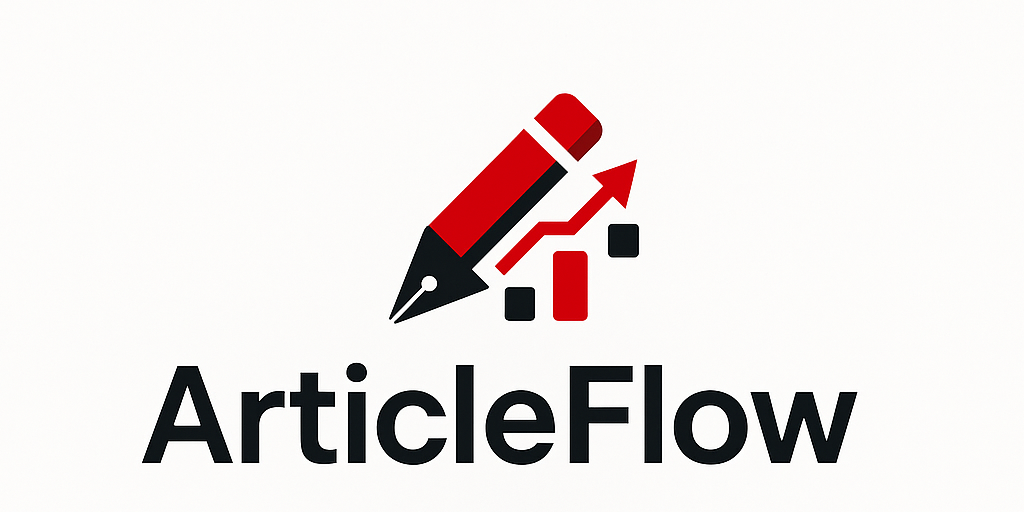Smart AI Tips for Bloggers and Niche Builders
Struggling to figure out how to find keywords for SEO? You’re not alone! Many bloggers, small business owners, and even seasoned niche builders often feel overwhelmed by technical tools, tight schedules, or just not knowing what phrases to target.
The constant pressure to find the right words for your blog posts can make the process feel harder than it needs to be.
Thankfully, AI and Artificial Intelligence have changed the game. Modern tools and bespoke writing services now make keyword research faster, smarter, and actually kind of fun.
With the right approach, anyone—from a hobby blogger to a high-traffic e-commerce entrepreneur—can uncover the keywords that matter, boost site visibility, and attract more readers in less time.
In this guide, you’ll get actionable tips that break down how to find keywords for SEO without the usual confusion. You’ll see how you can use AI-driven solutions to save hours on research and start seeing results.
It’s never been easier to publish SEO-friendly content that truly drives traffic, no matter your niche or experience level.
Understanding the Importance of Keyword Research for SEO
You wouldn’t bake a cake without a recipe, and you shouldn’t write blog posts without a keyword plan. Whether you’re new to blogging, building niche sites, or stepping up your business marketing, learning how to find keywords for SEO is as important as learning the basics of your trade.
The combination of SEO, AI, and smart research is now the heart of digital success, helping everyone—including busy entrepreneurs and creative bloggers—focus their energy where it counts most.
Let’s explore why keyword research remains your essential starting point, and how understanding user intent can sharpen any SEO strategy in 2025.
What is Keyword Research and Why Does It Matter?
 Photo by Tobias Dziuba
Photo by Tobias Dziuba
Keyword research is the process of discovering and selecting the words or phrases your audience types into search engines when looking for answers, ideas, or solutions.
It sounds simple, but it’s the foundation of all successful SEO. With advances in AI and Artificial Intelligence, finding keywords is faster and more precise, but the basics remain the same: speak the language of your readers.
Why does it matter for bloggers, small business owners, and marketers?
- Targets real needs. By uncovering what your audience is searching for, you can create blog posts and web pages that match their actual questions and pain points.
- Improves visibility. Smart keyword choices mean your content stands a better chance of appearing in search results, drawing more eyes to your site.
- Saves time and effort. Instead of guessing, you work smarter—publishing content that’s more likely to perform.
- Guides your strategy. Keyword data gives you direction, highlighting what matters most in your niche.
AI has made things easier. Tools powered by Artificial Intelligence now filter through millions of searches in seconds, revealing patterns no human could spot alone.
For busy niche builders or those scaling up SEO content services, this means it’s possible to shape a strategy based on real opportunities—not just hunches.
If you want even more background, the Moz guide on keyword research explains how this practice has evolved and offers step-by-step tips.
Understanding keyword research today means blending your human creativity with the power of smart technology.
How Search Intent Shapes Successful SEO
Choosing keywords isn’t only about volume or popularity. To really win at SEO, you need to understand what your audience wants at the moment they search.
This is called search intent: the purpose behind a search query.
There are three main types of search intent:
- Informational: The user wants to learn something (e.g., “how to find keywords for SEO”).
- Navigational: The user wants to visit a specific website or brand page (e.g., “Article Flow homepage”).
- Transactional: The user intends to buy something or take action (e.g., “sign up for AI-assisted SEO writing service”).
Getting this match right is what sets standout sites apart from competitors. When you address the intent head-on, Google rewards your relevance with better rankings. In 2025 and beyond, this is what counts: not just finding keywords, but predicting the why behind every search.
Here’s how you can align your content to user intent:
- Analyze keywords before writing. Don’t just look at the words—consider what your audience wants to achieve.
- Structure posts accordingly. An informational search deserves in-depth guides and practical lists. Transactional intent calls for clear calls-to-action and easy sign-ups.
- Update and adapt. Search intent shifts as trends and user expectations change. AI tools spot these shifts quickly, giving you a timely edge.
If you’d like a deeper dive, Backlinko’s guide to search intent breaks down user goals and how they link to SEO strategy.
Tailoring your blog posts to fit each intent means readers are more likely to stay, engage, and convert.
Understanding keyword research and user intent is the first step toward a winning SEO plan. With the right strategy and a little help from AI, blogging, content marketing, and niche building become much more effective—and a lot less overwhelming.
Pairing targeted keywords with real user needs is the smart approach that brings better rankings, more traffic, and results you can see.
If you’re ready for a personalized, AI-assisted approach to keyword research and SEO content, see how our bespoke content creation makes keyword optimization easy and effective for any project.
Step-by-Step Guide: How to Find Keywords for SEO in 2025
Unlocking effective keywords for SEO in 2025 is less about guesswork and more about working smarter.
Bloggers, business owners, and niche builders now have powerful AI and SEO tools at their fingertips to speed up the process.
By combining creativity and technology, you can uncover bright keyword opportunities, speak directly to your ideal reader, and build a strategy ready for the future.
Here’s how to start your journey toward smarter keyword research.
Brainstorm Seed Ideas: Unlocking Your Topic Potential
Getting started with keyword research means digging for the right topics.
Sometimes, inspiration comes easy—other times, your mind might be as blank as a new notebook.
Instead of waiting for ideas to appear, use proven techniques to kick things off:
 Photo by Tobias Dziuba
Photo by Tobias Dziuba
- Sneak a look at competitors. Visit top-ranking blogs in your niche to spy on their popular posts and the topics they target. Tools like Semrush and Ahrefs show you which keywords help your competitors shine.
- Hang out in forums and groups. Browse Reddit, Quora, or your favorite Facebook groups to see what real people are asking. This uncovers the language your audience uses and gaps you can fill.
- Use Google as a brainstorm buddy. Type in base topics, then watch the “autocomplete” and “People also ask” features light up with ideas you can use for SEO.
- Give AI a go. Prompt AI tools like ChatGPT to ‘Suggest blog post topics about [your subject]’. The results are fast, fresh, and surprisingly specific, helping you overcome creative roadblocks.
AI takes brainstorming to the next level, especially for those who write blog posts regularly or want to scale up their niche sites.
For example, AI-powered platforms can sift through massive datasets to deliver topic ideas you might miss by hand, while suggesting angles based on current trends.
With consistent brainstorming and support from these tools, you’ll never run out of topic fuel for your SEO engine.
Using AI and SEO Tools for Smart Keyword Discovery
Keyword discovery no longer means sorting endless spreadsheets or relying only on gut feeling. Today, the best AI and SEO tools put high-value keywords right at your fingertips.
Let’s look at some popular options trusted by pros in 2025:
- Semrush: Great for beginners and experts, this tool helps you see keyword volumes, difficulty, and trends.
- Ahrefs: Popular with digital agencies, it uncovers competitor strategies and backlinks for smarter keyword picks.
- ChatGPT: Not just for writing—ask OpenAI’s ChatGPT for keyword ideas, FAQs, or even to cluster keywords for blog posts. It’s especially useful for ideation and speeding up research.
- AI-powered platforms: Newer tools add even more machine smarts. For an overview and detailed reviews, check out the guide on the best AI tools for keyword research in 2025.
How does this look in practice?
- Example: Enter your basic keyword—say, “healthy recipes”—into Semrush or a similar tool. You’ll get hundreds of keyword ideas, complete with search volumes and competition scores.
- With AI: Ask ChatGPT, “Give me keyword suggestions for healthy recipes aimed at busy parents.” In seconds, you’ll have a focused list ready for your next round of research.
These platforms help bloggers and niche builders save hours, all while boosting relevancy and aligning results with what real readers type into Google.
You get to spot not just the obvious choices, but hidden gems with less competition—perfect for new blogs and smaller sites aiming to build authority quickly.
If you want to explore a range of the latest tools, the 18 best keyword research tools to try in 2025 offers an up-to-date breakdown for every budget and skill level.
Evaluating and Prioritizing Keywords for Real Growth
Once you’ve gathered a pile of keywords, it’s time to cherry-pick the best.
This decision shapes your blog’s traffic and growth—and here’s how to do it confidently:
- Look at search volume. High numbers seem tempting, but they usually mean stiffer competition. Balance big traffic with the chance to rank.
- Check competition levels. Target keywords where you stand a real chance, especially if your site is new or in a competitive niche. Tools highlight ‘difficulty’ as a quick-reference metric.
- Understand user intent. Are people looking for tips, products, or something else? Match your blog posts to what your reader really wants—that’s how you keep them on your site.
- Hunt for long-tail keywords. These are the three-to-five-word phrases (like ‘best shoes for flat feet running beginners’) that get less volume but much higher engagement. They work wonders for targeted traffic and help smaller sites stand out.
- Spot niche-specific gems. Instead of generic terms, use your expertise to dig up questions, product types, symptoms, or trends unique to your audience. These can power both SEO and blogging success.
Here’s a simple process to organize keywords for results:
- Sort your ideas by search volume, then highlight low-to-medium competition terms.
- Group keywords by topic—these clusters can drive entire blog post series, not just one article.
- Tag those that match transactional or informational intent, depending on your site’s goals.
- Test a few in your next blog posts. Watch performance using your favorite analytics tool, and update your list as you learn.
Finding the right keywords takes some trial and error.
But with a blend of AI, smart tools, and your own experience, you’ll soon spot which words bring steady, targeted growth—without fighting uphill battles for high-competition terms.
For a shortcut to tailored, SEO-ready blog posts—without all the research work—look into bespoke AI-assisted SEO content services.
These services ensure your site ranks higher with less effort, so you can focus more on building your business and less on spreadsheets.
Integrating Keywords into High-Impact Blog Posts and Web Content
Finding the right keywords is just the beginning when it comes to SEO. How you use those keywords in your blog posts and on your website will influence your rankings, reader engagement, and overall success.
People searching “how to find keywords for seo” want clear, practical strategies—not just a list of terms. Integrating keywords the smart way lets your content satisfy both search engines and real people, keeping it natural and readable.
Once you’ve picked those winning keywords, it’s time to weave them into the heart of your content, optimize your structure, and use proven internal linking strategies.
Here’s how you can put it all together with both confidence and creativity.
On-Page Optimization: Placing Keywords for Maximum Effect
 Photo by Alex P
Photo by Alex P
Great blogs and web pages don’t just “have keywords”—they put them in the right spots for the most power.
Here’s a simple checklist to guide your on-page optimization:
- Titles and Headings: Always include your main keyword in the page title and at least one H2 or H3 subheading. This signals to search engines what your page is about and helps users find what they need fast.
- First 100 Words: Drop your core keyword naturally within the opening lines or first paragraph to set the stage right away.
- Meta Descriptions: Use the main keyword (and a related phrase if possible) so your snippet in search results makes sense and encourages clicks.
- Body Text: Sprinkle primary and related keywords throughout your article. Make it feel natural—like seasoning in a recipe, not the main course. Keep sentences clear and avoid repeating the same word in every sentence.
- Alt Text in Images: Add descriptive keywords to image alt text for an extra SEO boost. This helps Google and assists people using screen readers.
- URLs and Slugs: Use short, keyword-focused URLs when publishing new blog posts.
Maintaining balance is crucial. Keyword stuffing makes content tough to read and hurts rankings.
A good rule: if your content sounds odd when you read it aloud, scale back the keywords. Use synonyms and related phrases for variety.
Instead of jamming keywords into every sentence, focus on your audience. Answer their questions.
Deliver real value. Happy readers will spend more time on the page, sending positive signals to search engines.
Internal Linking and Content Structure for Better SEO
Smart internal linking supports both readers and your SEO goals. Well-placed links guide visitors deeper into your site, keeping them engaged and building your authority on key topics.
Here’s how to structure links and content for SEO wins:
- Connect Closely Related Content: If you have other pages or articles about keyword research, blogging strategies, or SEO content services, link to them within relevant paragraphs.
- Be Descriptive: Use anchor text that tells readers exactly what to expect, like bespoke content creation, so they’re more likely to click.
- Spread Links Naturally: Include 1-2 internal links per page, spaced throughout the content rather than clustered together.
- Plan Topic Clusters: Organize your blog posts into groups by subject, each linking back to a main “pillar” page and out to related articles.
- Prioritize Value: Every link should add something for your reader—extra details, examples, or guidance.
Internal links are like paths in a garden—they help readers wander and discover what matters most.
Linking to your best services and content not only boosts pageviews but signals to search engines that you are an authority in your niche.
Content Creation Powered by AI and SEO Best Practices
Many bloggers, agencies, and niche builders worry about staying ahead with SEO.
This is where the combination of Artificial Intelligence and expert writing makes life easier.
AI-powered writing tools, such as those employed by Article Flow, are changing how teams and solo bloggers create blog posts.
These services analyze top-performing content, competitor data, and emerging trends to generate SEO-optimized articles quickly.
Benefits for different users include:
- Bloggers: Save time and energy with high-quality blog posts that follow SEO guidelines and engage readers.
- Agencies: Scale up content production without sacrificing quality or strategy, perfect for client demands.
- Niche Builders: Fill new websites with targeted articles, speeding up growth and authority in specific areas.
AI doesn’t just “write”—it optimizes. Platforms use keyword data, user intent, and search trends to ensure your content covers what readers search for.
This means better rankings, more traffic, and easier updates as SEO changes.
If you want future-proof, engaging, and SEO-focused articles ready to post, consider the advantages of outsourcing to a bespoke AI-assisted SEO writing service.
These services make it simple for anyone to keep up with SEO and focus on growing their audience.
Whether you’re working on a new niche site, scaling your agency’s blog output, or building an e-commerce presence, integrating keywords and advanced content tools will put your best foot forward.
SEO doesn’t have to feel out of reach—with the right structure, links, and content strategy, your blog posts can shine on any search results page.
Conclusion
Finding the right keywords for SEO is no longer a guessing game. With the help of AI and smart research, anyone can spark growth from their blog, business, or niche site.
Choosing targeted, intent-focused keywords is your direct route to reaching the readers and customers you want.
When you use modern keyword strategies and let Artificial Intelligence power your workflow, you gain more than rankings—you free up precious time and put your best ideas in front of the right audience.
If you’re looking to take your site further, bespoke content creation gives you a running start, blending proven SEO practices with tailored, high-quality writing.
Ready to see your site rise in search results and attract more of the right visitors? Discover how bespoke, AI-assisted SEO content can transform your blogging and niche-building efforts.
Stay tuned for future resources and real case studies to inspire your next step.
Thank you for reading, and feel free to share your thoughts below!






